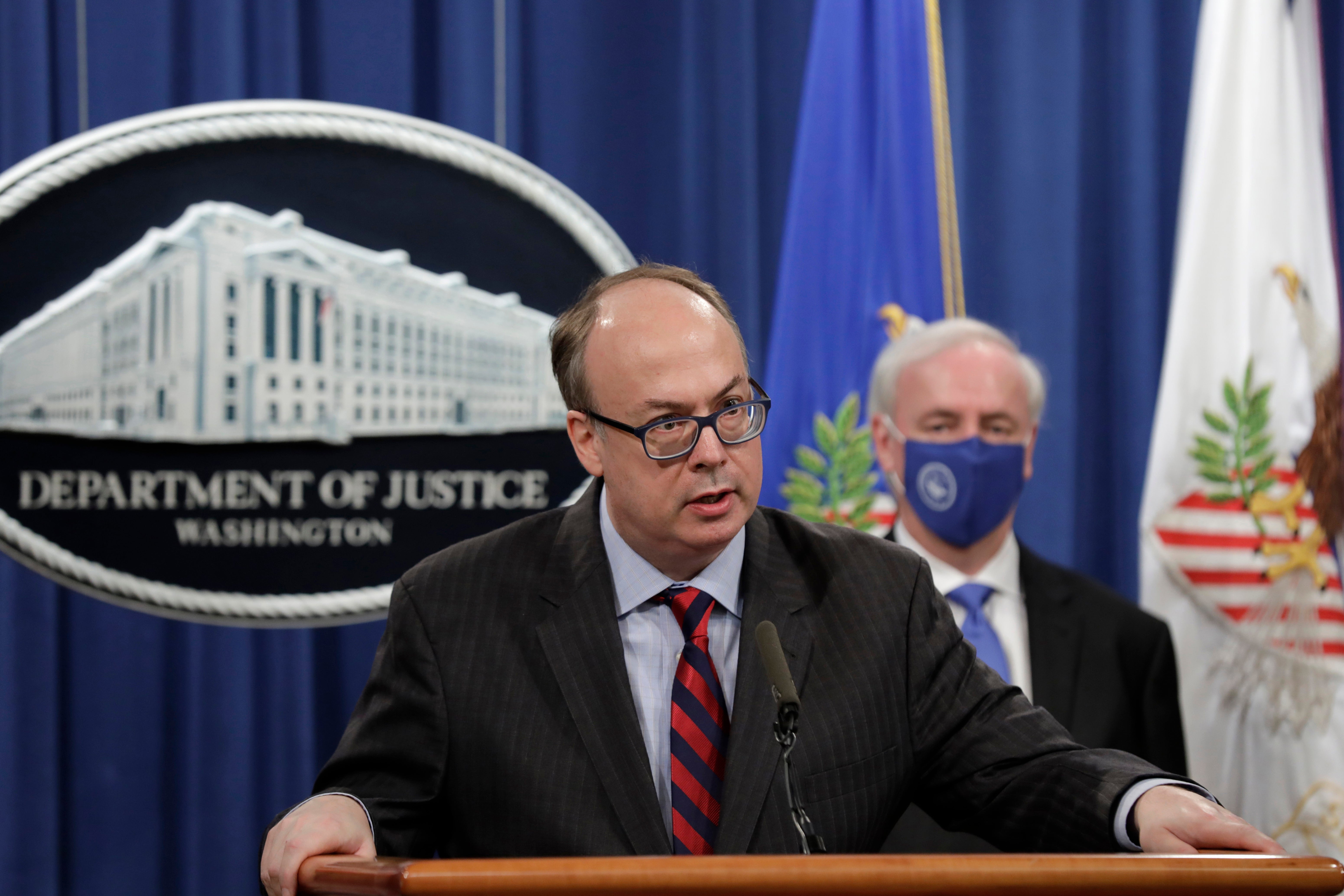Capitol riot committee to vote on contempt charges for Jeffrey Clark
Mr Clark would be the second person cited for contempt by the committee

The House of Representatives select committee investigating the 6 January insurrection will meet on Wednesday to consider authorising criminal contempt of congress charges against Jeffrey Clark, the ex-Trump Justice Department attorney who pushed to weaponise the department in service of former president Donald Trump’s push to overturn results of the 2020 election.
If the committee votes in favor of holding Mr Clark in contempt, a vote on the measure by the full House of Representatives would be the next necessary step before House Speaker Nancy Pelosi could refer him to the Department of Justice for possible prosecution.
The former Trump administration official served as acting head of the department’s civil division from September 2020 until 14 January of this year. In the days and weeks following Mr Trump’s 2020 election loss to President Joe Biden, Mr Clark reportedly tried to goad then-acting attorney general Jeffrey Rosen and other top department officials into signing a letter to state legislators in contested states won by Mr Biden which claimed that the DOJ had found evidence that raised “significant concerns” about the veracity of those states’ results and urged them to use their purported authority to appoint electors for Mr Trump against the wishes of voters.
No such evidence of fraud exists, and Mr Rosen refused to sign the letter.
On 13 October, select committee chairman Bennie Thompson issued Mr Clark a subpoena commanding him to produce documents and appear to give evidence before the committee on 29 October.
While Mr Clark did appear for the deposition, he refused to answer any questions, citing the possibility that the answers to the committee’s questions were shielded by executive privilege, a legal doctrine which protects deliberations between and among a president and his advisers.
Earlier this year, Justice Department officials notified former Trump appointees that they could give “unrestricted testimony” to congress regarding Mr Trump’s efforts to subvert the results of the 2020 election and the 6 January attack on the Capitol. Additionally, Mr Biden — the only person who can lawfully claim the privilege — has declined to invoke it in cases stemming from the events of that day.
And although Mr Clark has claimed that he is honouring Mr Trump’s wish for executive privilege to be protected, an attorney for Mr Trump — former Georgia representative Doug Collins — notified the Justice Department that Mr Trump had agreed “not to seek judicial intervention” to prevent Mr Clark from testifying before the committee.
If the house approves a contempt citation against Mr Clark and he is indicted for contempt of congress, he would be just the second person to face such charges since 1983.
The first was former White House chief strategist Steve Bannon, who a grand jury indicted on two counts of criminal contempt of congress on 12 November, less than a month after the house voted 229-202 to hold him in contempt.
Such charges carry a maximum penalty of a year in jail.
Join our commenting forum
Join thought-provoking conversations, follow other Independent readers and see their replies
Comments